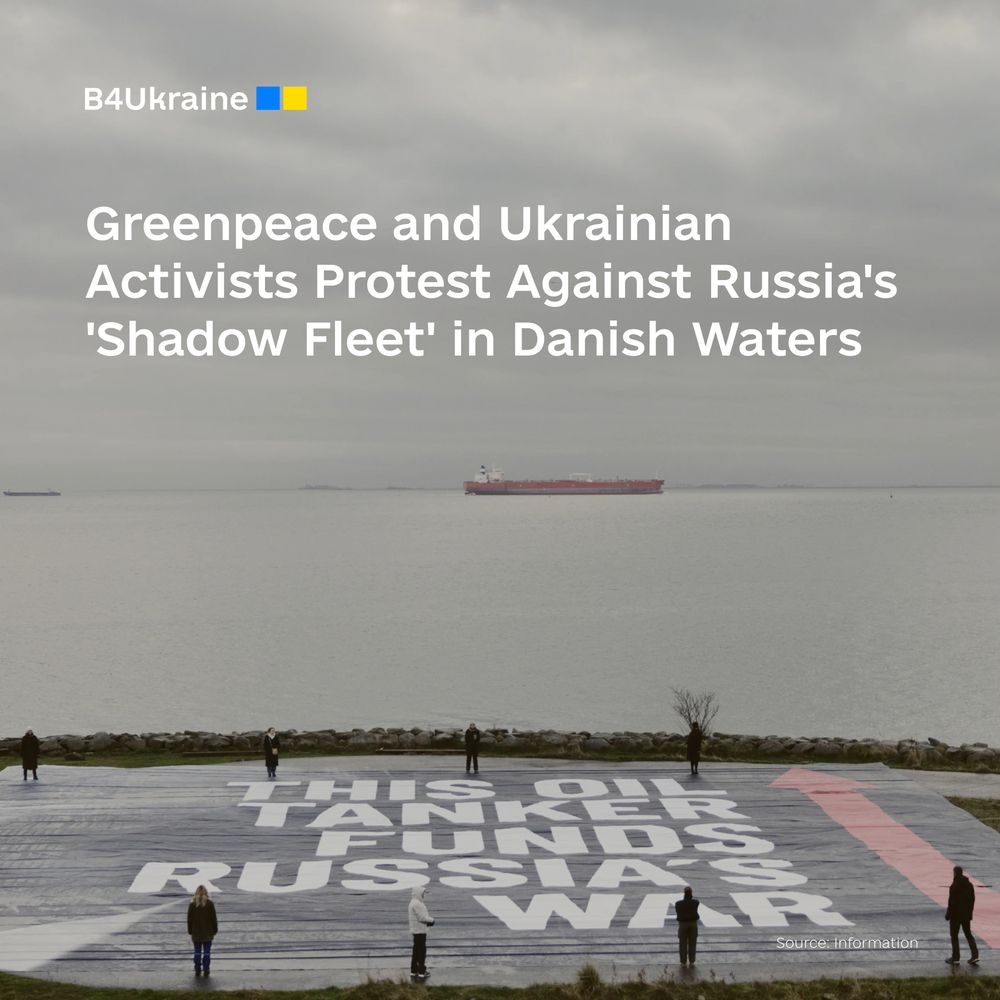
Greenpeace and Ukrainian activists gathered in Copenhagen on December 3 to protest against Russia’s “shadow fleet,” used to export oil and oil products through Danish straits and, more broadly, across European waterways.
Russia’s “shadow fleet” consists of old, uninsured ships that evade Western tracking. These vessels transport crude oil and petroleum products, circumventing international sanctions.
In June, the EU imposed sanctions on 27 Russian shadow tankers, banning them from ports and anchor sites. However, campaigners urge the Danish government to push the EU to follow the UK’s lead and expand these sanctions. In November, London added 30 ships to its sanctions list, bringing the total to 73.
Denmark is obliged to permit these vessels to transit its waters under the free right of passage protected by the Copenhagen Treaty. Nonetheless, Danish authorities can intervene if a ship’s voyage poses an imminent and significant risk, such as pollution from an oil spill. Greenpeace has stressed that shadow vessels represent “a very concrete and acute risk” to the marine environment.
Danish authorities are investigating potential measures against the Russian shadow fleet in coordination with international partners.
“This is about both supporting Ukraine and ensuring that Russia has fewer resources to fund its war,” said Valeria Voshchevska of the Ukraine Solidarity Project, a B4Ukraine member. She views these actions as an opportunity to advance multiple causes: “We are here to demonstrate that genuine solidarity between the climate movement and Ukraine supporters can lead to real results, creating change not just for the countries involved but for the world as a whole.”